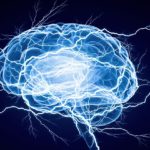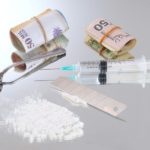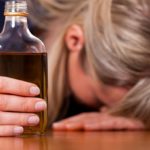Having a problem with a substance addiction that needs addressing has a lot of stigma attached to it. Most people perceive addiction as some kind of personality flaw or something that “only happens to other people”. The truth of course is a lot more complex than that and a lot more people are susceptible to addiction than they would like to admit. Regardless of everything, it remains that giving up a serious drug dependency and taking the first steps to improving your life is no easy task and will require a good support network and acceptance of many different changes in your life.
However, for many caught in the storm of addiction, it can be a confusing and daunting prospect to begin the recovery process. For many, the hold of these long term habits is so ingrained into the person that the mere prospect of removing them can seem impossible. But if you take the right first steps then it is possible to overcome these feelings. Let’s take a look at a few suggestions to help you start your road to recovery.
1. Acceptance of Your Addiction
Only one person can decide to dedicate an addict to fully recovering from their addiction and that is you, the addict. Many have the misconception that rehabilitation centers and therapy can magically transform your will to change yourself for the better. Sadly, this is not the case and you will need to consciously make the decision that you want to give up your addictions to improve your life. However, there are a number of things that can be done to help you see exactly how much your addiction is affecting your life.
Try keeping a “drug diary” of all the drugs that you consume in a single day and how much money you have spent on them. Make notes of everything that you missed or neglected to do on that day that you replaced with drug use. Over time you should read back through these diaries to show yourself exactly how much you are taking, what you are spending on them and the things you are missing due to your addiction.
2. Pros and Cons to Going Clean
Another good exercise to help you realize you need help to change your lifestyle is to make a list of all the positive and negative things that you would either lose or be gaining by giving up drugs. When compiling this list, think long term and about things that you could have done or would have had if it not for your drug use. Try to keep it balanced by coming up with some pros that you can think of about taking drugs. However, most people struggle to find many strong pros to lean on at this stage.
3. Consider How Drugs Affect the Things You Care About
Serious drug addiction can have a massive effect on many areas of your life, from neglecting time spent with friends and family, to not considering the effects of your addiction on your professional life. While it can be a slightly depressing thing to do, this can help you to focus on exactly what it is you will be giving up drugs for and how recovery will positively affect these things. Essentially you will be using these areas of your life as goals in order to motivate you and help you make the decision to go into rehab.
4. Talk to Your Friends and Family About Your Addiction
While it will most certainly be a difficult conversation to have, on both sides, talking to trusted friends and family members about how your addiction has impacted their lives can be a great way to gain an outside perspective on the issue. Normally, addicts tend to hurt and isolate the people around them more than they do themselves, sometimes completely unintentionally. So when looking for reasons to go into rehab, asking your best friend or your mother why they would want you to go can be a powerful motivator.
Approaching this topic can be difficult depending on a number of different factors, including how close you are to that person and how badly you have personally affected them. It can help to make a list of people who matter the most to you and trying to come to terms with the problems in your respective relationship. Normally the people who care about you the most will be fully supportive of, and even encourage, your decision to get clean, and can even help you strengthen your relationship.
5. Seek Professional Help
Nowadays there are many ways that addicts can seek professional medical and psychological treatment to help them break their cycle of addiction. Normally this will start with a visit to your local doctor. Be frank and honest with them about what drugs you are addicted to, to what extent and what help you would like in getting clean. Doctors are trained in all areas of medicine including drug addiction and will be a great source of professional advice moving forward. For many people who are heavily addicted to a substance, residential rehab is recommended to help get the round the clock care and monitoring some recovering addicts need.
There are many different kinds of rehab centers, each with their own treatment ethos and program of recovery and choosing the right one for you and your addiction requires a good amount of research and dedicated time to making the right choice. Ultimately their program and success rates, as well as past resident testimonies and reviews should be the main areas that you consider, however, also take into account things like treatment methods and their staff. A good rehab center will generally have a good composition of all these things.
Ultimately some people decide that they would rather go overseas to rehab in Thailand, and this is where we at Clarity step in to offer expert guidance and advice for all those who want to make the right steps on the path to recovery. To find out more, please contact us by telephone on +66 97 256 4084






